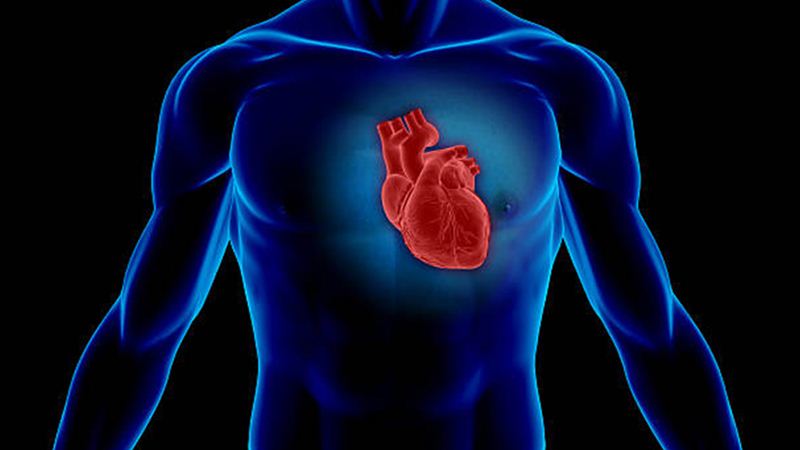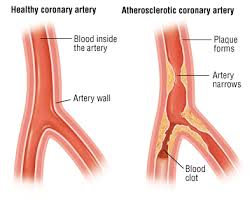Angina

Angina pectoris is commonly known as angina. The term derives from the Latin angere (“to strangle”) and pectus (“chest”), and can therefore be translated as “a strangling feeling in the chest”. It is caused by reduced blood flow to your heart muscle. Your blood carries oxygen, which your heart muscle needs to survive.
There are three types of angina:
- Stable Angina: is usually triggered by physical exertion. When you climb stairs, exercise or walk, your heart demands more blood, but it’s harder for the muscle to get enough blood when your arteries are narrowed. Besides physical activity, other factors, such as emotional stress, cold temperatures, heavy meals and smoking, also can narrow arteries and trigger angina.
- Unstable angina: If fat-containing deposits in a blood vessel rupture and a blood clot forms, it can quickly block or reduce flow through a narrowed artery, suddenly and severely decreasing blood flow to your heart muscle. If the blood flow doesn’t improve, heart muscle deprived of oxygen dies — a heart attack. Unstable angina is dangerous and requires emergency treatment.
- Variant angina: is caused by a spasm in a coronary artery in which the artery temporarily narrows. This narrowing reduces blood flow to your heart, causing chest pain. Variant angina can occur even when you’re at rest, and is often severe.

Risk factors:
- Tobacco use
- Diabetes: is the inability of your body to produce insulin hormone that is secreted by your pancreas and allows your body to use glucose, which is a form of sugar from foods.
- High blood pressure: Over time, high blood pressure damages arteries.
- High blood cholesterol: forms a major part of the deposits that can narrow arteries throughout your body, including those that supply your heart. This is also of two kinds namely good cholesterol and bad cholesterol.
- History of heart disease: If you have coronary artery disease or if you’ve had a heart attack, you’re at a greater risk of developing angina.
- Older age
- Lack of regular exercise regime
- Obesity raises the risk because it’s associated with high blood cholesterol levels, high blood pressure and diabetes. Also, your heart has to work harder to supply blood to the excess tissue.
- Stress can increase your risk of angina and heart attacks. Too much stress, as well as anger, can also raise your blood pressure.
Common symptoms of heart attack
- Pressure or squeezing pain in the centre of your chest that lasts for more than a few minutes
- Increasing occurrences of chest pain
- Shortness of breath
- Sweating
- Fainting
- Nausea and vomiting
Preventive Measures
Quitting smoking
Daily Exercise to control diabetes and hypertension
Eating a healthy and balanced diet









